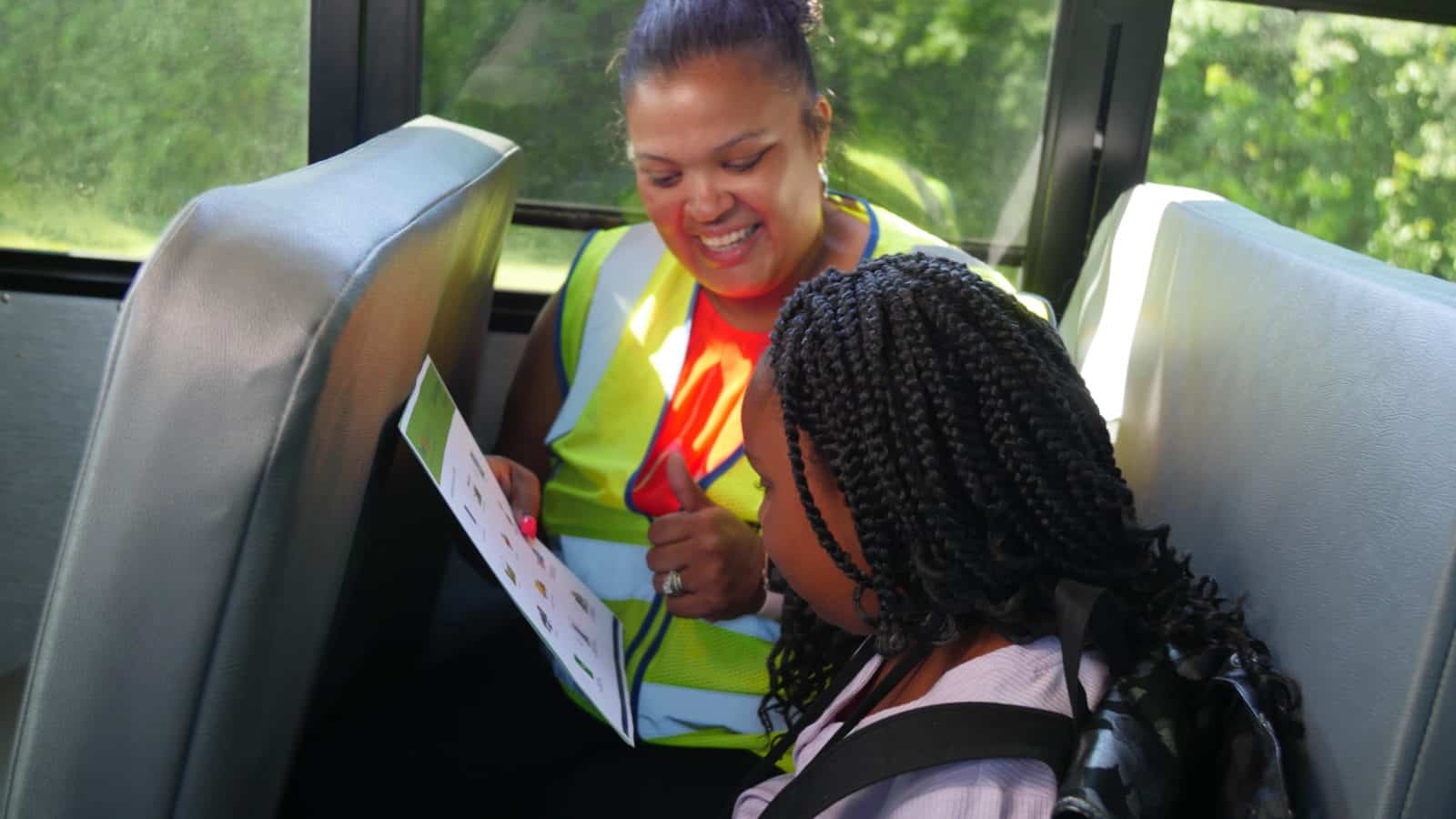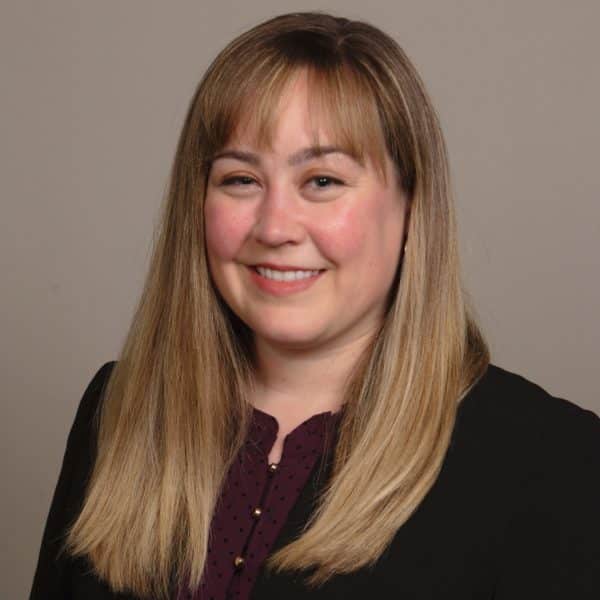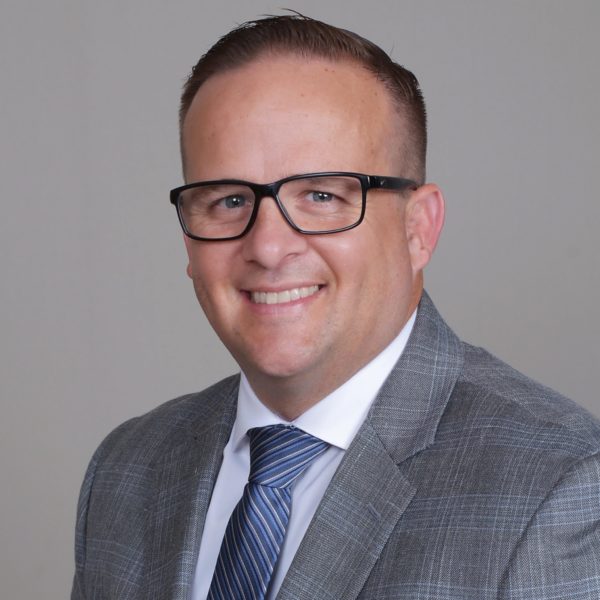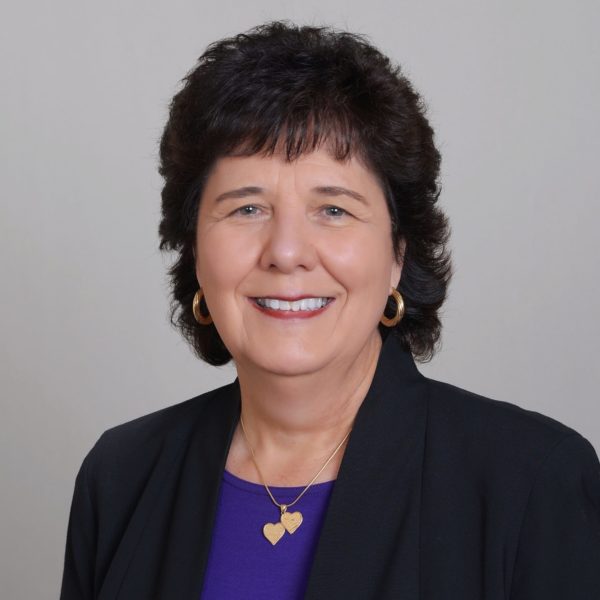Written by: Dr. Allison Blackburn, William McDermott and Dr. Susan King

School bus drivers, attendants, school personnel and families have observed the student transportation system and identified elements of the bus ride that may produce anxiety, behavioral incidents, and rage in children with special needs. First Student recognizes that the school day begins for a student when they board the bus, and their ride to school can impact their performance in the classroom. We conducted research to identify behavioral, emotional, and physical factors that may impact a student.
As a result, we developed a program to provide transportation personnel and district transportation leaders with knowledge of special education, disabilities, and research-based behavioral interventions to best meet the needs of students on the bus.
The first step in development was collaborating with a behavioral psychologist from a nationally ranked children’s hospital to explore the needs of students with disabilities. Together, we ran focus groups with parents of students with developmental disabilities and drivers assigned to special education routes. Our behavioral psychologist also conducted interviews with transportation managers and participated in observational ride-a-longs.
Initially, data was collected from three school districts. The feedback from the drivers, attendants, students, parents, and school districts high-lighted two areas to focus on: (1) transportation staff had different levels of understanding with regards to disabilities and behavioral management strategies; and (2) effective communication was an ongoing challenge for all stakeholders. These findings served as the foundation for combining research-based interventions, special needs education and our best-in-class training program for transportation staff.
We developed a program with a focus on safe, supportive, and reliable transportation for students with special needs. The initial training highlighted developmental disabilities, behavior as a form of communication, behavior management and de-escalation techniques. We presented it to a large, mid-western location servicing a school district that transports approximately 16,000 students per day. The training was conducted to include visual supports, social stories, sensory/activity kits, and instructional aides.
Finally, we surveyed our drivers and attendants at the location and analyzed the results to determine how the new training assisted them on their daily routes and enhanced their daily performance. Their responses indicated they had a better understanding of developmental disabilities and were more confident in their ability to help students after completing the training. They felt it provided new information on developmental disabilities and strategies for effectively communicating with families and school personnel.
The initial training and research also provided insight that our drivers’ and attendants’ needs were greater than the training that was initially developed. The additional needs identified warranted an expansion of our team and the development of a more comprehensive program. We recruited a special needs educator, a special education transportation specialist, safety experts, transportation personnel and a training and program development professor.
The team collaborated to develop an expanded program based upon the initial and ongoing research. The updated program includes consideration for legal issues in special education, characteristics of disabilities, strategies for de-escalation of conflicts, communication strategies and leadership development at transportation locations.
To ensure that these efforts remain current and top of mind, we continue to take steps that solidify the program’s integrity. We conduct ongoing research to make necessary changes that keep materials fresh and relevant. To sustain and institutionalize the program, we implemented a train-the-trainer model so location leadership can disseminate training content and identify their location-specific needs.
Every school year, the transportation industry faces challenges that impact the experience of students on the bus. First Student is committed to leading the way with research-based programs that improve the daily transportation experience of our students with disabilities. Conducting and utilizing research to make constructive change will positively impact drivers, attendants, districts, students, and their families. We are committed to collaborating with experts and employing research-based strategies and techniques to provide a positive experience to students with special needs and deliver them to school ready to learn.
Have questions? Email us at FirstServes@firststudentinc.com
Dr. Allison Blackburn

Dr. Allison Blackburn is a Licensed Psychologist, specializing in the assessment and treatment of children with developmental disorders. At the Kelly O’Leary Center for Autism Spectrum Disorders at Cincinnati Children’s Hospital, the #4 children’s hospital in the country, she serves families and their children through comprehensive behavioral interventions and diagnostic evaluations. She partnered with First Student in 2018 to co-develop the FirstServes program to enhance the bus riding experience for children with developmental disabilities.
William McDermott

Will McDermott is the co-founder of Hopewell Transportation that was acquired by First Student in 2020. Will was the Principal of Hopewell Academies from August of 2007 to August 2018. During his time as a high school principal, he identified a need for a new approach to Special Education Transportation. Will currently is on the FirstServes Advisory Board and is an Area General Manager at First Student.
Dr. Susan King

Dr. Susan King is an experienced special educator, researcher, and professor based in the Washington, D.C area. Her expertise is in the area of assessment, teacher training, behavior management and working with families of students with special needs. Dr. Susan King joined First Student’s FirstServes Advisory Board in 2020.